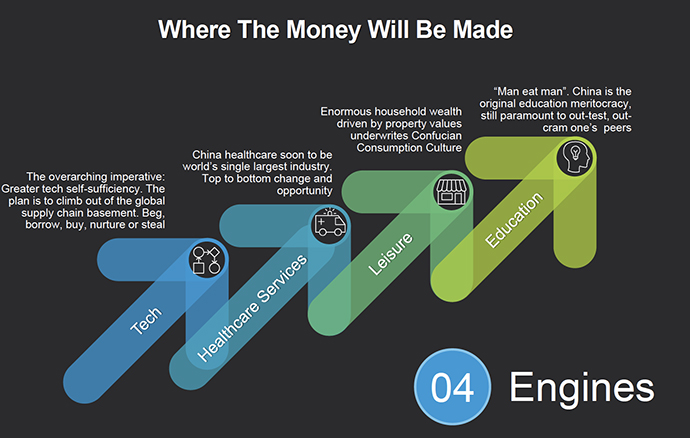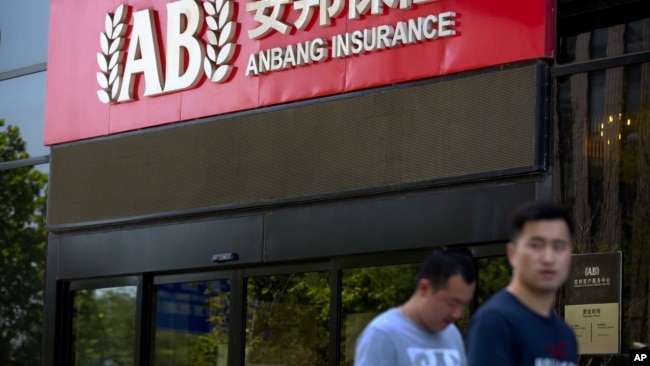
–
–
Â

By SUI-LEE WEE, RYAN McMORROW and TARIQ PANJA
NOV. 16, Â Â Â 2017
 Li Yonghong in April with David Han Li, left, of Rossoneri Sport Investment, part of A.C. Milan’s new ownership group, and Marco Fassone, the club’s chief executive.
Li Yonghong in April with David Han Li, left, of Rossoneri Sport Investment, part of A.C. Milan’s new ownership group, and Marco Fassone, the club’s chief executive.
–
BEIJING — When the Chinese businessman Li Yonghong bought A.C. Milan, the world-famous Italian soccer club, virtually nobody in Italy had heard of him.
Virtually nobody in China had, either.
Mr. Li had never been named to one of China’s lists of the country’s richest people. The mining empire he described to Italian soccer officials was hardly known even in mining circles.
Nevertheless, Mr. Li seemed to have what mattered most: money. He bought the club in April for $860 million from Silvio Berlusconi, the former Italian prime minister, to clinch China’s biggest-ever soccer deal.
Today, Mr. Li’s acquisition of A.C. Milan appears to be emblematic of a string of troubled Chinese deals.
The soccer club, bleeding money after a spending spree on star players, is seeking new investors or a refinancing of the high-interest loan that Mr. Li took to buy the club. That loan comes due in a year.
Chinese corporate records show that — on paper, at least — someone else owns his mining empire. That company’s offices were empty on a recent visit, and a sign on the door from the landlord cited unpaid rent. A spokesman for A.C. Milan said Mr. Li’s control of the mining business had been verified by lawyers and banks involved in the transaction.
Chinese records also show a series of business disputes and run-ins between Mr. Li and Chinese regulators.
China’s emergence as a world economic power came with a ready checkbook for major brand names. Chinese owners now control the Waldorf Astoria hotel in New York, AMC theaters, the Hollywood production company Legendary Entertainment and A.C. Milan.
Then Chinese officials began to worry that the spending was simply part of an exodus of money from China so vast that it once threatened to destabilize the country’s economy, the world’s second largest. This summer, the government ordered its banks to scrutinize lending to some of the country’s biggest deal makers.
Outside China, some of the deals led regulators to ask questions about the tycoons behind them. Some wealthy people in China list their holdings under the names of relatives or associates to avoid scrutiny, a practice that has attracted criticism inside and outside the country.
In the case of Mr. Li, the mines that he told A.C. Milan he controlled have been owned by four different people since last year, according to Chinese corporate records. The business changed hands twice for no money, the documents show.
Mr. Li declined an interview request through A.C. Milan. The club spokesman defended Mr. Li on his business disputes, saying that sometimes he was a victim and that sometimes he was not aware of complicated rules. The spokesman also said the club was evaluating several refinancing proposals and was confident it could cover the loan.
Chinese spending on soccer totaled $1.8 billion over the past five years, according to Dealogic, a data provider, but Chinese officials are putting a stop to the spree amid concerns about the flight of money abroad.
“There’s a lot of ways to invest in football and the sports industry for much less money,†said Mark Dreyer, who tracks Chinese soccer investments on his website, China Sports Insider. “People were basically using the government’s previous push for sports as a way to diversify into different industries and get their money out of China.â€
Mr. Li had plenty of reasons to buy A.C. Milan. President Xi Jinping had professed his love for soccer and wanted China to be a superpower in the sport by 2050. The Chinese government had laid out a plan for increasing sports investment.
An acquisition of A.C. Milan would be a marquee deal. A decade ago, the club was home to some of soccer’s biggest talents, including Ricardo Izecson dos Santos Leite, who is known as Kaká, and Andrea Pirlo. It was a seven-time European champion.
But it has not won an Italian championship for six years or a European title for 10. Fans welcomed Mr. Li’s arrival as a potential catalyst. This summer, A.C. Milan began to spend on new players in a way that seemed to signal a desire to compete again.
Still, Mr. Li and Mr. Berlusconi struck the deal at a difficult time. Beijing, spooked by the unprecedented capital outflows and a weakening currency, had imposed restrictions on overseas investment at the end of last year.
Mr. Li set up companies in the British Virgin Islands and Luxembourg that would put the club’s legal ownership outside China, according to Marco Fassone, A.C. Milan’s chief executive officer. Mr. Li also borrowed about $354 million from the hedge fund firm Elliott Management, a loan he must pay back by October 2018. A spokeswoman for Elliott declined to comment.
A.C. Milan remains debt laden and unprofitable, and could have trouble repaying what it owes on its own. It spent about $274 million to sign 11 players this summer, according to the club spokesman, making it among the biggest spenders in European soccer.
In August, A.C. Milan had to wait for the transfer of two players it had signed from other teams because it had not deposited the required bank bonds. The club blamed a timing issue for the delay, and the transfers were eventually completed. The team is in seventh place but, with more than two-thirds of the season left to play, must finish among the top four to earn a spot in European soccer’s elite Champions League next season. The team could lose valuable television revenue if it fails to reach that level.
It is unclear how much Mr. Li’s wealth might help the club address its troubles.
He was initially unknown to the deal makers trying to sell the club, the people involved in the transaction said. He was originally part of a group that included Sonny Wu, a well-known investor who is chairman of the private equity firm GSR Capital, these people said. But Mr. Wu pulled out of the deal.
In an email, Mr. Wu said he had not talked to bankers about Mr. Li or his consortium. Rothschild & Company, the investment bank that advised Mr. Li, declined to comment.
Mr. Li told A.C. Milan that his holdings included phosphate mining operations in the city of Fuquan in Guizhou Province.
But Chinese corporate filings show that the mines are owned by another party: Guangdong Lion Asset Management, an investment company. And Guangdong Lion has had a complicated ownership record over the past two years, involving a number of people with similar family names. (One court proceeding suggests Mr. Li has a relationship with Guangdong Lion, although it is not clear what kind.)
Originally, Guangdong Lion was ultimately owned by two investors, Li Shangbing and Li Shangsong, according to filings. Like Li Yonghong, the two men come from the same area of Maoming, a city on China’s southern coast, according to the documents. But in a phone interview, Li Shangbing said he did not know Li Yonghong.
Li Shangsong, who declined to comment, sold his interest in Guangdong Lion in 2015 to a person named Li Qianru, according to the documents. The documents did not include personal information about Li Qianru, who could not be reached for comment.
In May 2016, according to the filings, Li Shangbing and Li Qianru, sold Guangdong Lion to yet another Li: Li Yalu. The sale price: $0. The filings do not provide personal information about Li Yalu.
Three weeks later, Li Yalu sold a half stake in Guangdong Lion to a similarly obscure investor, Zhang Zhiling. The price: $0. Neither could be reached for comment.
Li is a common surname in China, and the relationships among the various Lis are unclear. The A.C. Milan spokesman declined to comment.
Li Yonghong, the A.C. Milan owner, and Li Shangbing have two things in common.
The first is a relationship with Guangdong Lion. A Chinese court cited Li Yonghong and Guangdong Lion in April for failing to resolve a loan dispute with another Chinese company, saying both parties had disappeared. The court did not specify the relationship. The A.C. Milan spokesman said that Li Yonghong had merely guaranteed the loan and that “he is a victim in this case.â€
The second is an interest in investing in European sports.
In May 2016, a day before Li Shangbing sold Guangdong Lion for no money, he started a company called Sino-Europe Sports Asset Management Changxing Company, according to China’s corporate database.
Two days after he registered the Sino-Europe firm, another person registered a new company with a strikingly similar name: Sino-Europe Sports Investment Management Changxing Company. The two companies’ headquarters were in the same building in the city of Huzhou.
Sino-Europe Sports Investment owns a stake in A.C. Milan as a result of its role as a shareholder in Rossoneri Sport Investment, a Chinese company that is part of the group led by Li Yonghong that owns the soccer club.
In the phone interview, Li Shangbing denied setting up either Sino-Europe company and said he did not own any part of A.C. Milan. He declined to answer further questions. A.C. Milan declined to comment on Li Shangbing. The listed owner of the Sino-Europe Sports Investment Management Changxing Company, Chen Huashan, could not be reached for comment.
Guangdong Lion’s listed headquarters are in a fancy skyscraper in Guangzhou. In August, the offices were closed, with an eviction notice on the door. Inside, desks and chairs were in disarray, computers were missing hard drives, and maggots festered in a trash can.
The phone number listed for Guangdong Lion connects to a woman who said she helped companies register with Chinese regulators.
Li Yonghong has an extensive business history, but Chinese records show it includes disputes with regulators and others.
In 2013, China’s securities watchdog fined Mr. Li $90,250 for failing to report the sale of $51.1 million in shares of a real estate company. A.C. Milan said Mr. Li had simply been unfamiliar with listing rules.
In 2011, that same real estate company said in a stock filing that Mr. Li was the chairman of Grand Dragon International Holding Company, a Chinese aviation company. Grand Dragon said in June that he had no present or past association with the company. The A.C. Milan spokesman said he had no knowledge of this.
In 2004, Mr. Li’s family business, the Guangdong Green River Company, teamed up with two other companies to bilk more than 5,000 investors out of as much as $68.3 million, according to The Shanghai Securities News, the official newspaper of China’s financial watchdogs. They had sold contracts for lychee and longan orchards and promised investors hefty returns, according to the report.
Mr. Li’s father and brother were sentenced to jail. Mr. Li was investigated but not accused of wrongdoing, the report said.
A.C. Milan said the episode had nothing to do with Mr. Li, adding that “he was not aware of the situation until the investigation.â€
Amid Chinese concerns about deals abroad, China’s purchases of soccer teams with prestige names is likely to slow considerably for some time to come.
“If outbound investment should have the purpose of ‘strengthening the nation,’ even within the broadest of definitions,†Peter Fuhrman, chairman of the investment bank China First Capital, said in an email, “buying a soccer team in the U.K. or Italy would hardly seem to qualify.â€
–
As published in The New York Times–
–


































